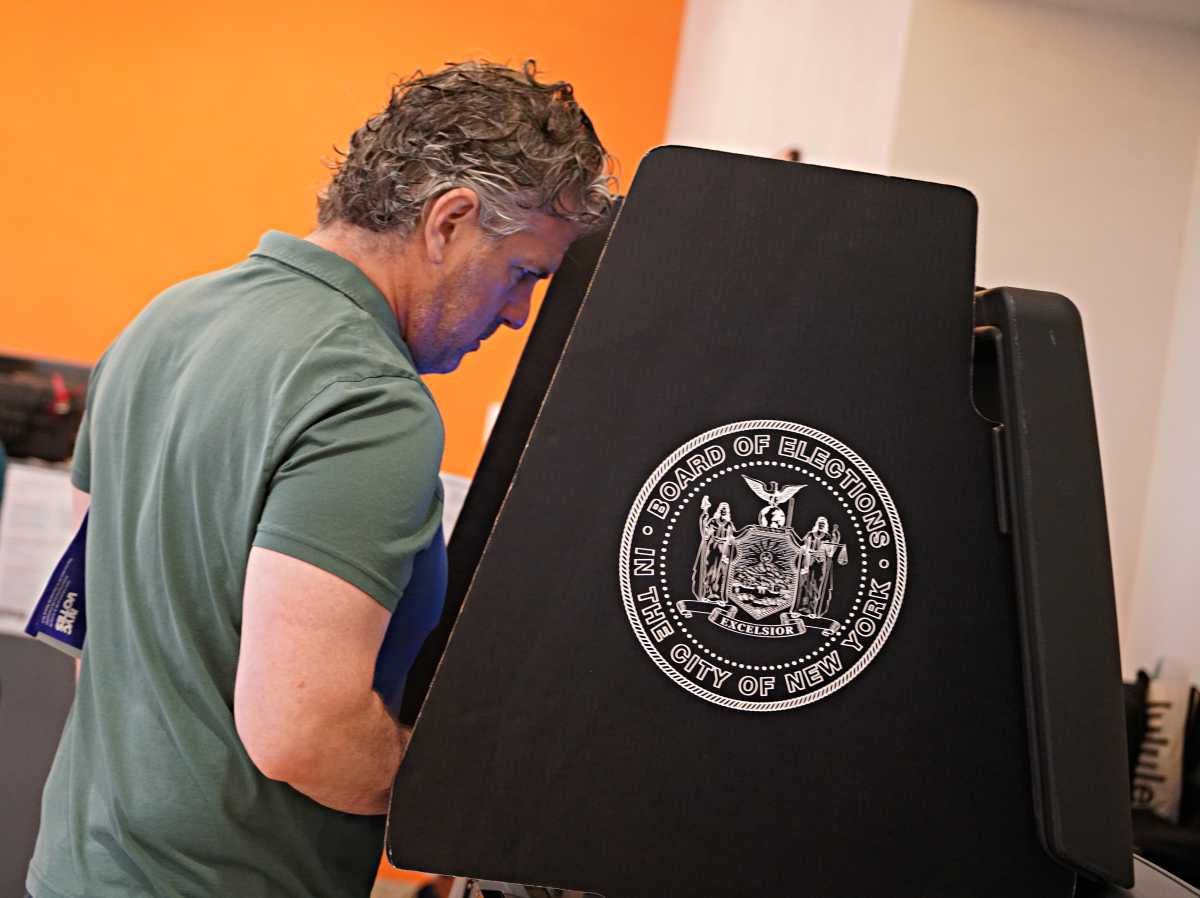EEOC Commissioner Chai Feldblum. | US EQUAL EMPLOYMENT OPPORTUNITY COMMISSION
While no federal law bars discrimination based on sexual orientation and gender identity in employment, the federal Equal Employment Opportunity Commission (EEOC) has accepted roughly 2,500 cases alleging such discrimination over the past 18 months based on the legal theory that this is discrimination based on sex.
“About two years ago, the EEOC ruled that someone who’s transgender and discriminated against on that basis is a form of sex discrimination,” Chai Feldblum, an EEOC commissioner, told National Public Radio last year. “And then at some other opinions, we also explained how people who are discriminated against based on their sexual orientation — that can also be a claim of sex discrimination. Now charges are coming in to our offices and they're not being turned away.”
In the first nine months of 2013, the agency received 147 complaints charging employment discrimination based on gender identity and 643 complaints alleging employment discrimination based on sexual orientation.
Federal equal employment agency outpaces US courts in seeing anti-gay bias as sex discrimination
In the 2014 federal fiscal year, which ran from October 1, 2013 through the end of last September, the agency received 202 gender identity complaints and 918 sexual orientation complaints. The agency received 112 gender identity complaints and 505 sexual orientation complaints in the first five months of the 2015 fiscal year.
In any one of the three time periods, about 20 to 25 percent of the cases were closed administratively. The EEOC found “no reasonable cause” in another 60 to 65 percent of the cases. The remaining cases were settled, withdrawn with some benefit to the complainant, resolved through mediation, or are still pending. Altogether, the agency has collected about $4 million in “monetary benefits” for the plaintiffs. All of the cases in this EEOC data are against private employers.
Since 2012, the EOOC has asserted that discrimination based on gender identity is a form of sex discrimination. That theory and transgender plaintiffs had already had some success in federal court cases. The agency has taken the same position in sexual orientation discrimination cases since at least 2011, though that theory has been less successful in federal courts.
Sex is a protected class in Title VII, which bars employment discrimination, in the Civil Rights Act of 1964. The EEOC enforces Title VII. The EEOC accepting these cases serves several purposes beyond providing a remedy for the individuals who bring the complaints.
Twenty-two states currently ban discrimination based on sexual orientation and 19 of those 22 also include gender identity. In addition to complaints brought in those 22 states, the EEOC cases, which most likely come primarily from states without nondiscrimination protections, add to the evidence of discrimination LGBT people in the US face.
Last year, the US Department of Labor added sexual orientation and gender identity as protected classes to a 1965 regulation that barred discrimination by federal contractors. Historically, the Labor Department has dealt with systemic discrimination problems and referred individual cases to the EEOC. The EEOC will now handle cases under the amended regulation. (Responding to a Freedom of Information request from Gay City News, the EEOC refused to release a memorandum of understanding it has with the Labor Department on implementing that amended executive order.)
And the EEOC and LGBT groups are continuing their efforts to convince federal judges that discrimination based on sexual orientation is discrimination based on sex.
In 2014, the EEOC filed a friend-of-the-court brief in an Illinois case in which a male employee at Caterpillar, the heavy equipment manufacturer, charged he was subjected to racist and anti-gay harassment and then retaliation when he complained. The case was filed in 2009 and dismissed on summary judgment in 2012. On appeal, the dismissal was upheld by a three-judge panel, which said Title VII does not bar discrimination based on sexual orientation. The agency filed a brief seeking a rehearing.
“Since the Court first announced this interpretation of Title VII over thirty years ago, an increasing number of courts (as well as the Commission) have recognized that intentional discrimination based on an individual’s sexual orientation can be proved to be grounded in sex-based norms, preferences, expectations, or stereotypes,” the EEOC wrote. “If this Court does not rehear the panel’s decision, it will create considerable confusion for employers and employees. It also could chill effective enforcement of civil rights laws.”
In a separate friend-of-the-court brief in that case, the ACLU, the ACLU of Illinois, the Human Rights Campaign, Lambda Legal, and the Transgender Law Center made a similar argument. The requests for a rehearing were denied and the case is ended.
In 2013, Lambda Legal filed a friend-of-the-court brief in a discrimination case brought against the Library of Congress by a gay employee there. In that brief, Lambda argued for the broader definition of sex in Title VII that would bar discrimination based on sexual orientation.
As Arthur S. Leonard reports, a May 11 ruling from a US magistrate judge in the Colorado District Court will allow a gay pilot alleging sexual orientation discrimination in his firing to purse a sex discrimination claim.




































